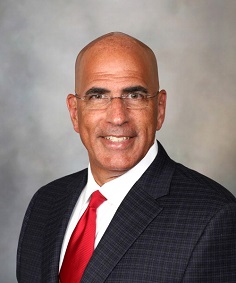
Joseph A. Dearani, MD
STS News, Summer 2020 — As you read this, I hope you, your family, and colleagues are well. The COVID crisis has altered our lives, both professionally and personally. Hospitals, health care systems, private practitioners, and most of all—our patients—have been impacted.
STS also has been affected. We have canceled courses, conferences, meetings, and events. Yet, I am proud to say that throughout this difficult time, STS has been front and center—vocal, visible, and increasingly virtual.
Surgeon leaders, including myself and Drs. Sean Grondin and Joe Sabik, have been in regular contact with CEO Elaine Weiss and other members of the STS management team, as well as many of our talented and dedicated members. Together, we have been nimble and worked hard to develop resources and programs to help you and the specialty at this difficult time.
These COVID-related resources have included webinars, guidance documents, surgeon perspective articles, and resource utilization prediction tools (see pages 2 and 12).
We hosted a Global Summit that featured major leaders from our most prestigious organizations around the world. The group shared lessons learned so that we persevere and prevail in our resolve to protect our patients, our fellow surgeons, and health care workers as we recover from this crisis (see cover). More than 1,000 unique individuals participated in the live broadcast and many more have watched the archived version.
The Global Summit and other moments like that demonstrated that we are stronger together and can weather the storm if we stand together and learn from one another.
The Society also engaged in successful conference calls with the deputy secretary of the US Department of Health and Human Services, House Committee on Energy and Commerce, Centers for Disease Control and Prevention, Food and Drug Administration, and National Institutes of Health. These conversations focused on increasing availability of ECMO equipment, personal protective equipment, parenteral medicines (diuretics, anticoagulants), and a blood product donation initiative.
Now, as the US and many other countries begin to recover from the COVID crisis, we are cognizant of how this pandemic has affected cardiothoracic surgeons—financially, physically, and emotionally.
In early June, we launched a new series of webinars. This STS Summer Series began with an episode for early careerists. Dr. Mara Antonoff and I talked to colleagues about how they are coping and asked them for insights and tips on how cardiothoracic surgeons can thrive in this new world. If you did not have a chance to view this webinar, you can view it now on the STS website or on the Society’s YouTube channel.
Other webinars this summer will focus on low-risk TAVR, critical care, and the financial impact of COVID.
“We definitely will face some challenging conditions moving forward, but our specialty has a history of being impressive,
and I know we will prevail.”
Health of the Society
I am pleased to report that STS remains on solid financial ground at this point in time, but we are carefully monitoring all aspects of our business and organizational activity as we know it. This is a marathon, and we are not yet close to the finish line.
We will be hosting two fall meetings virtually and will do everything possible to ensure that our members have a meaningful experience and that our industry partners can continue to play a valuable role. At this time, we still plan to hold our January 2021 meeting in Austin, Texas, but will keep you apprised if the situation changes.
Our Board recently held an orientation and spring meeting via Zoom. We were surprised at how effectively we were able to conduct our business and maintain meaningful exchanges throughout these meetings. As a result, we are planning an additional Board meeting via Zoom later in July.
Reactivation of CT Surgery
Now, as surgical programs around the country and around the world ramp back up again, we are beginning to see the effects of delayed procedures. Some patients have died because they didn’t seek help for obstructive lesions or because cancer care was delayed. We also are seeing and experiencing the financial effects that COVID has had on our hospital systems and health care workers. In addition, we are fighting a battle to stop planned Medicare reimbursement cuts from taking effect in 2021 (see page 18).
We definitely will face some challenging conditions moving forward, but our specialty has a history of being impressive, and I know we will prevail.
Cardiothoracic surgery is on the stage every single day. Cardiothoracic surgeons face a storm head on. Our grit, professionalism, and empathetic side have been projected to the outside world in a way that instills confidence, hope, and unity. It is a reminder to me why I went into cardiothoracic surgery in the first place.
The medical profession—and specifically cardiothoracic surgeons—have performed really quite well under very untoward circumstances these past few months. I feel proud to be part of a profession in which the higher the pressure, the better the performance. I hope you feel the same way.
Please feel free to reach out to me with your thoughts, concerns, and feedback at jdearani@sts.org.
Be well and be safe.